Seeking Answers Elsewhere – Yoruba Divination Art
PRIMITIVE - Wednesday, November 26, 2014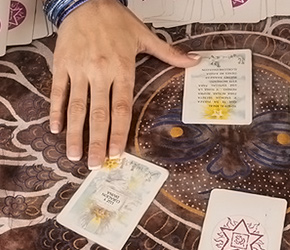 |
|
By Misaki Imagawa
Sometimes we don’t want to listen to logic or reasoning. We just want to pretend (and in some cases really believe) that someone – or something out there – knows all the answers to our troubles. The business of fortune telling runs on this kind of human psychology, so much so that there seems to be an almost infinite number of professional fortune telling specialties like tarot cards, palm reading, astrology, and for those with a semi-sweet tooth, even fortune cookies. I had one cookie that said, “Your dream will come true this year.” How could you not feel optimistic when you crack open a cookie and find a message like that? Some people simply find the future in religious prayer and ceremony, while others go a step further and seek out connections with the ‘other side’ through séances, spiritual mediums, and even the Ouija board. Whether used as a means to look into the future, correspond with spirits in the afterlife, or predict the winning lottery numbers, fortune telling and divination is everywhere.
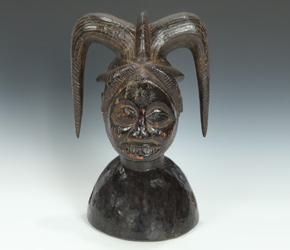 |
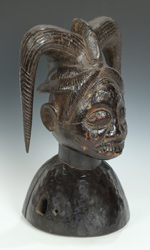 |
|
As far back as the Delphi Oracles of the Ancient Greeks, divination has always been a part of human civilization. The ancient Chinese threw bones to look into the future. The Aztecs in Mesoamerica used reflective water surfaces and mirrors as well as hallucinogens to enter divining trances. Meanwhile, in Nigeria and southern Benin, the Yoruba people practice a much more complex method of communicating with the other world and have done so for many centuries. Yoruba diviners are called Babalawo, which translates as ‘father or master of the secrets.’ They are priests of Ifa, one of the oldest religions in Africa and elsewhere. Ancestor worship, divination, and Orisha worship are the three main aspects of Ifa. The Orisha are pantheon of deities who are less than God but more than humans. The divination system practiced by the Babalawo represents the teachings of Orisha Orunmila, the ‘god of wisdom and knowledge.’
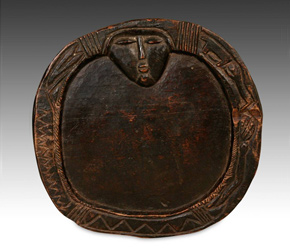 |
|
The divination process begins with the ‘Opon Ifa,’ a wooden divination tray that is usually flat and circular. It’s kind of like a `Ouija board, but without the alphabet, numbers, yes/no, and that creepy ‘goodbye’. The edges of an Opon Ifa are raised and carved with human or animal motifs, objects or geometric designs, and at the top of the Opon Ifa, referred to as the ‘head’, is a representation of Orisha Eshu carved in relief. Eshu is called the Guardian of the Crossroads. He is the Orisha known to provide opportunity by opening doors and windows and clearing paths of obstacles. Eshu is also known as the ‘Orisha of communication,’ and is capable of opening channels between the spirit world and the living.
To begin the divination process, the Babalawo dusts the Opon Ifa with powder from irosun trees. He traces sacred signs and then taps the Opon Ifa with the pointed end of a tapper known as the ‘Iroke Ifa.’ He establishes a rhythmic beat, invoking the presence of Orunmila. While a tarot card reader will rely on a deck of 78 cards, the Babalawo throws 16 sacred palm nuts called Ikin onto the tray. They can fall on one of two sides and result in one of 256 different combinations. These 256 sets represent what can be called the 256 chapters of Ifa, each chapter, if you will, providing insight and direction on a specific course of action to create harmony. The art of the Babalawo is to translate the information being presented in a useful and meaningful way so that all resulting actions will be elegant and effective.
To the Yoruba people, communication with the world of the Orisha through the divination process helps to identify issues and provide solutions. The problem could be as serious and collective as determining the future of a village or as individual as finding the right mate. All things considered, the reasons the Yoruba seek otherworldly wisdom are not much different from ours or other cultures – except, perhaps, the Babalawo may turn down a request to know the next winning lottery numbers! The tradition of divination has been and continues to be revered among the Yoruba people, and when their art relates to the Orisha or divination it often exhibits a special, ethereal quality. Their art often acts as a bridge between this world and the next – our world and the realm of the Orisha.
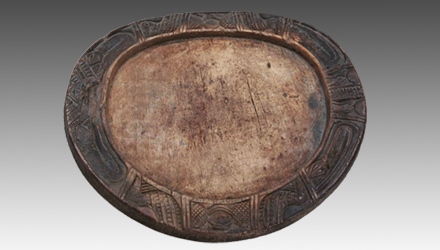 |
Download this Article: Seeking Answers Elsewhere.pdf